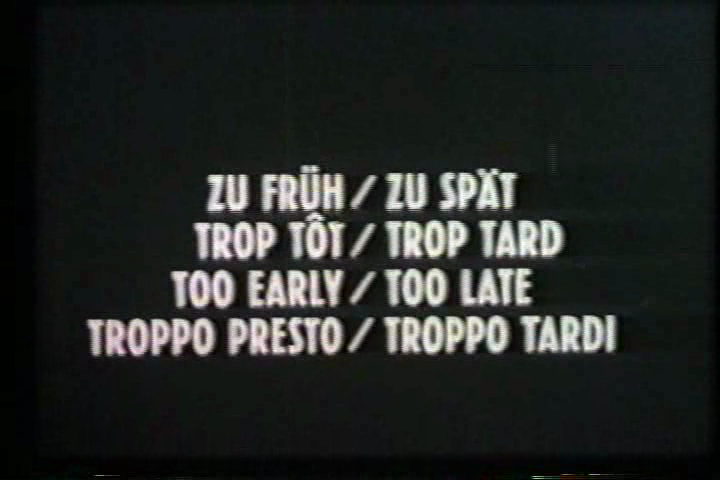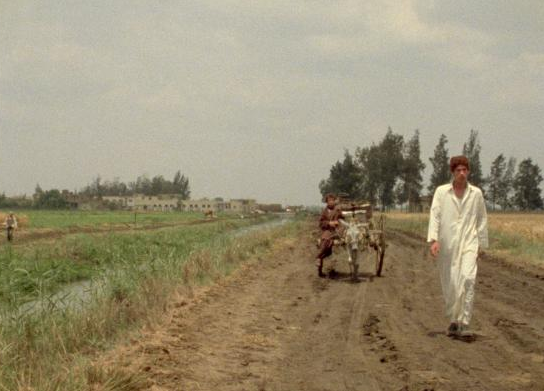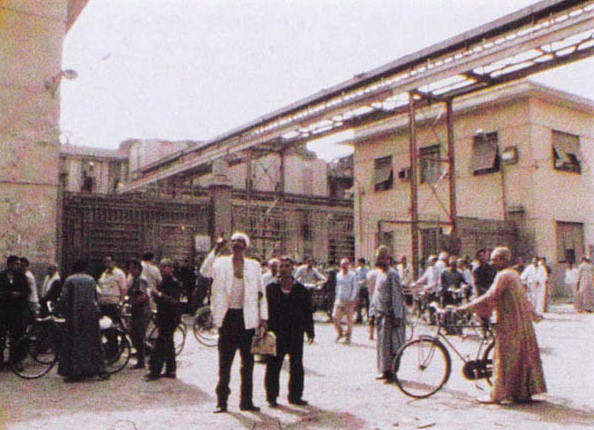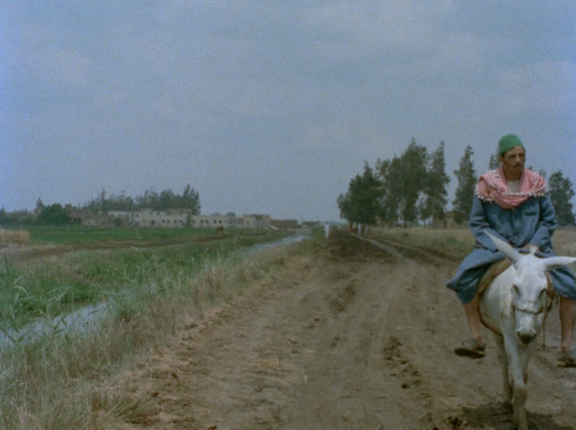Curated by Annett Busch en Florian Schneider
Danièle Huillet & Jean-Marie Straub, 1981, France/Egypt, 105 min, 16mm projection, English version.
In June 1980, the Straubs spent two weeks filming in the French countryside. They were seen in places as improbable as Treogan, Mottreff, Marbeuf and Harville. They were seen prowling close to big cities: Lyon, Rennes. Their idea, which presides over the execution of this opus 12 in their oeuvre (already twenty years of filmmaking!) was to film as they are today a certain number of places mentioned in a letter sent by Engels to the future renegade Kautsky. In this letter (read offscreen by Daniele Huillet), Engels, bolstered with figures, describes the misery of the countryside on the eve of the French Revolution. One suspects that these places have changed. For one thing, they are deserted. The French countryside, Straub says, has a "science fiction, deserted-planet aspect." Maybe people live there, but they don't inhabit the locale. The fields, roadways, fences and rows of trees are traces of human activity, but the actors are birds, a few vehicles, a faint murmur, the wind.
In May 1981, the Straubs are in Egypt and film other landscapes. This time the guide isn't Engels but a more up-to-date Marxist, author of the recent and celebrated 'Class Struggles in Egypt', Mahmoud Hussein. Again offscreen, the voice of an Arab intellectual speaks in French (but with an accent) about the peasant resistance to the English occupation, up until the "petit-bourgeois"revolution of Neguib in 1952. Once again, the peasants revolt to o early and succeeded too late as far as power is concerned. This obsessive recurrence is the film's "content." Like a musical motif, it is established from the outset: "that the middle-class here as always were too cowardly to support their own interests/that since the Bastille, the plebes had to do all the work."
The film is thus a diptych. One, France. Two, Egypt. No actors, not even characters, especially not extras. If there is an actor in 'Too Early, Too Late', it's the landscape. This actor has a text to recite: History (the peasants who resist, the land which remains), of which it is the living witness. The actor performs with a certain amount of talent: the cloud that passes, a breaking loose of birds, a bouquet of trees bent by the wind, a break in the clouds; this is what the landscape's performance consists of. This kind of performing is meteorological. One hasn't seen anything like it for quite some time. Since the silent period, to be precise.
Serge Daney
The image only exists on the screen if it is a thought: an idea that is made concrete. But having an idea in cinema appears first of all as an act of resistance against the very possibilities of cinema. Too soon or too late it may become clear that this is exactly what cinema is about: to make an alignment or to unalign; in any case one has to take a position, since it always matters where the camera is; to frame an image without making a frame around it, and to glue these images together. The purpose of the frame is to transport time; to carry it across specific places, in order to understand what is missing. One is expecting it, it both comes and does not come, it is always brought forward and delayed. Annett Busch and Florian Schneider: Property relations Opening of the studios with an presentation of the project, its backgrounds and goals.
Language English
Location Extra City - Antwerpen-Noord, Tulpstraat 79, 2060 Antwerpen





